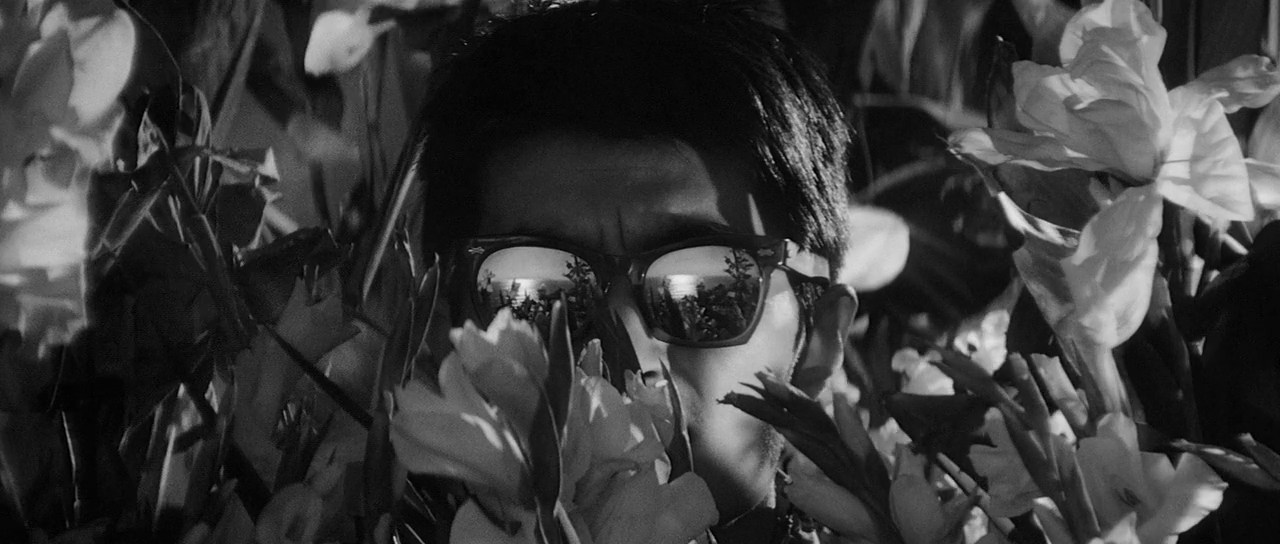
Tuesday, August 27th at 7pm
HIGH AND LOW
Akira Kurosawa (Japan 1963) 143 min. 35MM. With Toshirō Mifune, Tatsuya Nakadai, Kyōko Kagawa. In Japanese with English subtitles.
Toshiro Mifune is unforgettable as Kingo Gondo, a wealthy industrialist whose family becomes the target of a cold-blooded kidnapper in High and Low (Tengoku to jigoku), the highly influential domestic drama and police procedural from director Akira Kurosawa. Adapting Ed McBain’s American pulp crime novel King’s Ransom, Kurosawa moves effortlessly from compelling race-against-time thriller to exacting social commentary, creating a diabolical treatise on contemporary Japanese society.
4K digital restoration by University of California, Berkeley Art Museum and Pacific Film Archive, and The Film Foundation from the original negatives, funding provided by the Hobson/Lucas Family Foundation. Additional support provided by Peter Conheim, Cinema Preservation Alliance; courtesy Milestone Films and Kino Lorber.
“A thriller flush with needle-spiking tensions and bullet-train exhilarations… The existing literature is rich with praise for High and Low’s screw-tightening first hour, as Gondo, a group of zealous cops, and Kurosawa’s anamorphic lens remain locked in the mansion’s living room, fielding the kidnapper’s phoned-in demands. It’s an astonishing episode, built on elaborate permutations of group- and individual-formation, mixing two-shots and seven-shots into icy cameos and exponentially enervated group portraits. But once it shifts into its investigatory second hour, the film’s true flowers unfold… “ – Chuck Stephens, Criterion Current
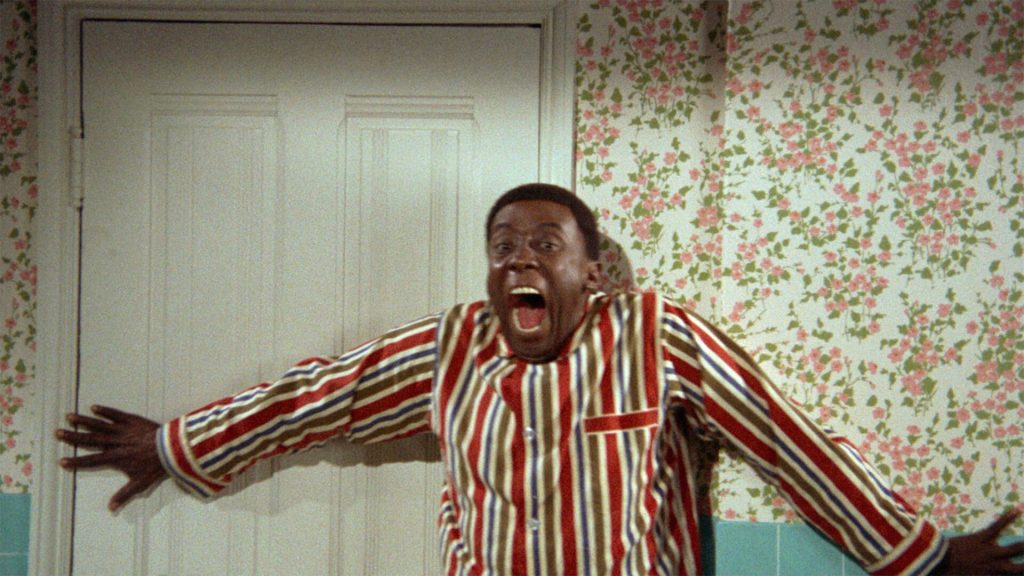
Tuesday, September 3rd at 7pm
WATERMELON MAN – New Restoration!
Melvin Van Peebles (U.S. 1970) 97 min. DCP. With Godfrey Cambridge, Estelle Parson, Howard Caine.
Per Melvin Donaldson, in his book Black Directors in Hollywood, “it may be difficult to measure the extent to which Melvin Van Peebles shaped Black filmmaking, and perhaps even more difficult to assess to what degree Van Peebles has inspired African American artists in general… At the very least, Van Peebles represents a pioneering independent vision that forced Hollywood studios to be aware of a new approach to the cinematic renditions of African Americans.” Watermelon Man, the director’s second feature, is “a subversive lampoon of race relations starring prominent Black comedian Godfrey Cambridge. Cambridge—initially in whiteface!—plays bigoted insurance salesman Jeff Gerber, married to the more liberal Althea (Parson). When Gerber wakes up one morning and discovers, to his horror, that he has inexplicably become a Black man, it upends his world—and, ultimately, transforms his politics. Van Peebles’s provocative romp, all bright colors and broad comedy, offers a biting satire of White racism while pursuing, with relish, themes of Black empowerment and radicalization” (The Cinematheque, Vancouver). Presented in connection with the class Blaxploitation N the ‘Hood, and introduced by Jaye Austin Williams, Professor of Performance Studies, Critical Black Studies, and Theatre & Dance.
“A cunning subversion of Hollywood and television conventions … A truly remarkable film, whose major themes—White privilege, Black subjectivity, liberal White racism—feel just as relevant today as they did in 1970.”
– Racquel Gates, Film Quarterly
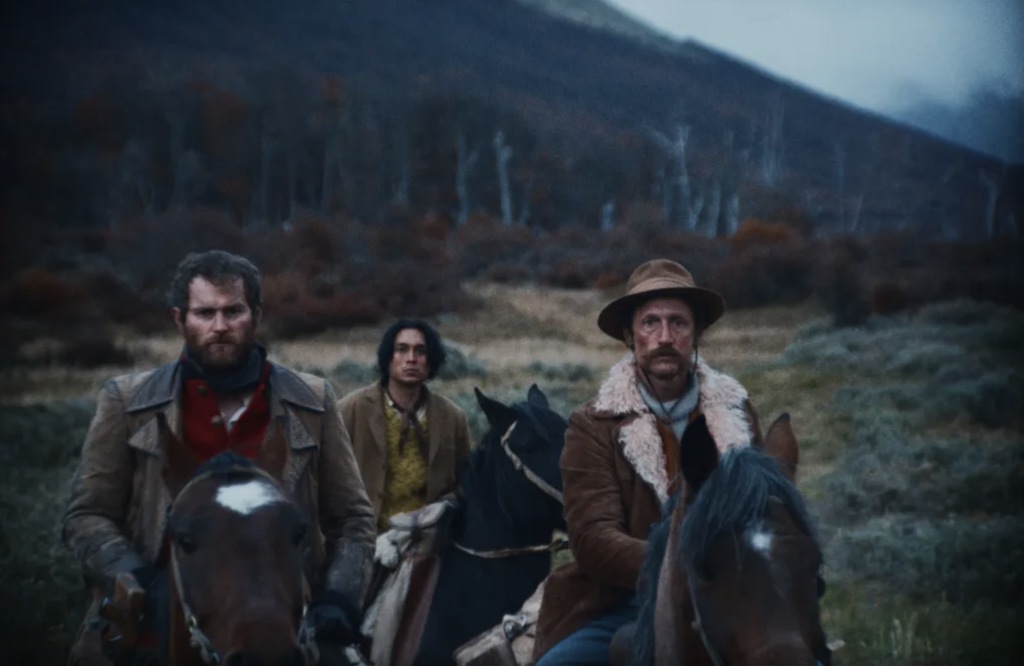
Tuesday, September 10th at 7pm
THE SETTLERS – Conversation with the Director!
Felipe Gálvez (Chile & Argentina, 2023) 100 min. DCP. With Alfredo Castro, Mark Stanley, Benjamin Westfall. Spanish with English subtitles.
Writer-director Felipe Gálvez emerged as a startling new voice in Latin American cinema with this searing revisionist western, which was an official selection at the Cannes Film Festival. Capturing majestic landscapes with a painterly eye, Chile’s official Oscar entry is a singularly immersive reckoning with national myth-making and its attendant violence. Presented in connection with the following courses: Inventing the Global South (taught by Bret Leraul), Memory, Camera, Human Rights (taught by Fernando Blanco), Introduction to Sociology (taught by Apollonya Porcelli), and Racism(s) Across the Americas (taught by David Rojas). Sponsored by the Bucknell Humanities Center. The pre-film virtual conversation with the director will be led by Comparative & Digital Humanities Professor Bret Leraul.
“Gálvez’s work here is by turns blunt and subtle, and very assured… As the camera sticks close to its [young, sharp-shooting mestizo], a question mark of a character and uneasy moral compass, the story progresses elliptically with pockets of quiet, naturalistic dialogue and a sense of mounting outrage.” – Manohla Dargis, The New York Times
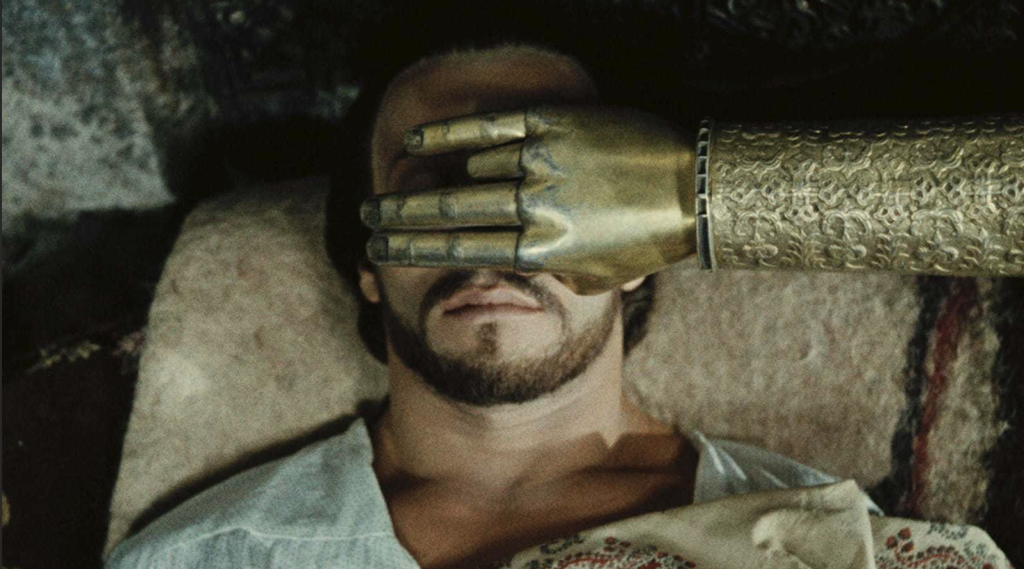
Tuesday, September 17th at 7pm
THE COLOR OF POMEGRANATES
Sergei Parajanov (Soviet Union 1969) 78 min. DCP. With Sofiko Chiaureli, Melkon Alekian, Vilen Galustian, Georgi Gegechkori. Armenian with English subtitles.
A breathtaking fusion of poetry, ethnography, and cinema, Sergei Parajanov’s masterwork overflows with unforgettable images and sounds. In a series of tableaux that blend the tactile with the abstract, The Color of Pomegranates revives the splendors of Armenian culture through the story of the eighteenth-century troubadour Sayat-Nova, charting his intellectual, artistic, and spiritual growth through iconographic compositions rather than traditional narrative. The film’s tapestry of folklore and metaphor departed from the realism that dominated the Soviet cinema of its era, leading authorities to block its distribution, with rare underground screenings presenting it in a restructured form. This edition features the cut closest to Parajanov’s original vision, in a restoration that brings new life to one of cinema’s most enigmatic meditations on art and beauty. Restored by The Film Foundation’s World Cinema Project and the Cineteca di Bologna, in association with the National Cinema Centre of Armenia and Gosfilmofond of Russia, and funded by the Material World Charitable Foundation. Presented in connection with the Bucknell Humanities Center themed programming, “Narrating Russia’s Empires: Eurasian Resistance/s.” Introduction and an after-film Q&A moderated by professors Zukhra Kasimova (History), Lenora Murphy (Russian Studies), and Amanda Wooden (Environmental Studies & Sciences).
“When the film first appeared in the West, few outside the Soviet Union had heard of its subject, so we had to take on trust that the vivid visuals bore some relation to the verse. But now that translations of some of Sayat-Nova’s lyrics are readily available, it has become clear that daggers, silks and brocades, and wandering in sackcloth and ashes are indeed the stuff of his love poetry. What Parajanov did was to stylize the poet’s world, literally visualizing his imagery, radically simplifying the story of his life, and totally dispensing with any framing or narration. In some ways, this approach could be compared with that of Ken Russell’s astonishing television arts documentaries of the sixties… But in Parajanov’s hands, the effect was as rich and strange as any film by Kenneth Anger or Derek Jarman. ” – Ian Christie, Criterion Current

Tuesday, September 24th at 7pm
JAPANESE PAPER FILMS – Special Presentation with Live Musical Accompaniment!
On the heels of his sold-out program at New York City’s venerable Light Industry, film scholar and Bucknell Film/Media Studies professor Eric Faden will present his latest archival research, a remarkable rescue and resuscitation of otherwise hidden and endangered Japanese cinema.
In the 1930s, several Japanese companies produced films made on paper (called kami firumu, 紙フィルム) instead of celluloid. The films were often in color and some films had synchronized sound tracks on 78 rpm records. Given the short period of production, the varying paper quality, and WWII’s devastation, very few paper film prints survive. Those prints that do survive are too fragile to play on their original projectors and thus, most films haven’t been seen in over 85 years. The Japanese Paper Film Project started at Bucknell University in 2019 and is dedicated to preserving the surviving films.
Our program this evening features a wide-ranging collection of these digitized Japanese paper films: documentary, abridged versions of live-action Japanese and international feature films (some now lost), plus lots of anime. Animated paper films give us a peek into the origins of contemporary anime, with films that celebrate various historical and fictional samurais, rōnin, and ninjas. Several popular 1930s manga characters—Norakuro and Sutakora Sacchan, amongst others—also appear in paper films. Here, long before Miyazaki, we find fairy tales about Shinto gods and mythological creatures.
The screening, a little over an hour in length, will include both silent and sound paper films, with each piece running 1-4 minutes. For those films without a soundtrack, Duo Yumeno (Yoko Reikano Kimura on koto and Hikaru Tamaki on cello) will provide live musical accompaniment.
“There is something uncanny about watching the visibly worn sprocket holes, abstract dirt marks and stains, and folded creases that appear and disappear on the paper as the animations play. Rather than distract from the content, they magnify the sense that the paper itself is coming to life as it rapidly changes on-screen right before viewers’ eyes; meanwhile, the printed characters in the images seem not to take any notice of what mortality surrounds them. Whether or not the moving content appears realistically ‘alive,’ it’s impossible to ignore that the material plane very much is—and decaying—as captured in the Kyōrinrin recordings. These Japanese paper films are stark reminders of cinema’s material history, and how that history is being brought into the present for the sake of the future. ” – Shelby Shaw, Screen Slate
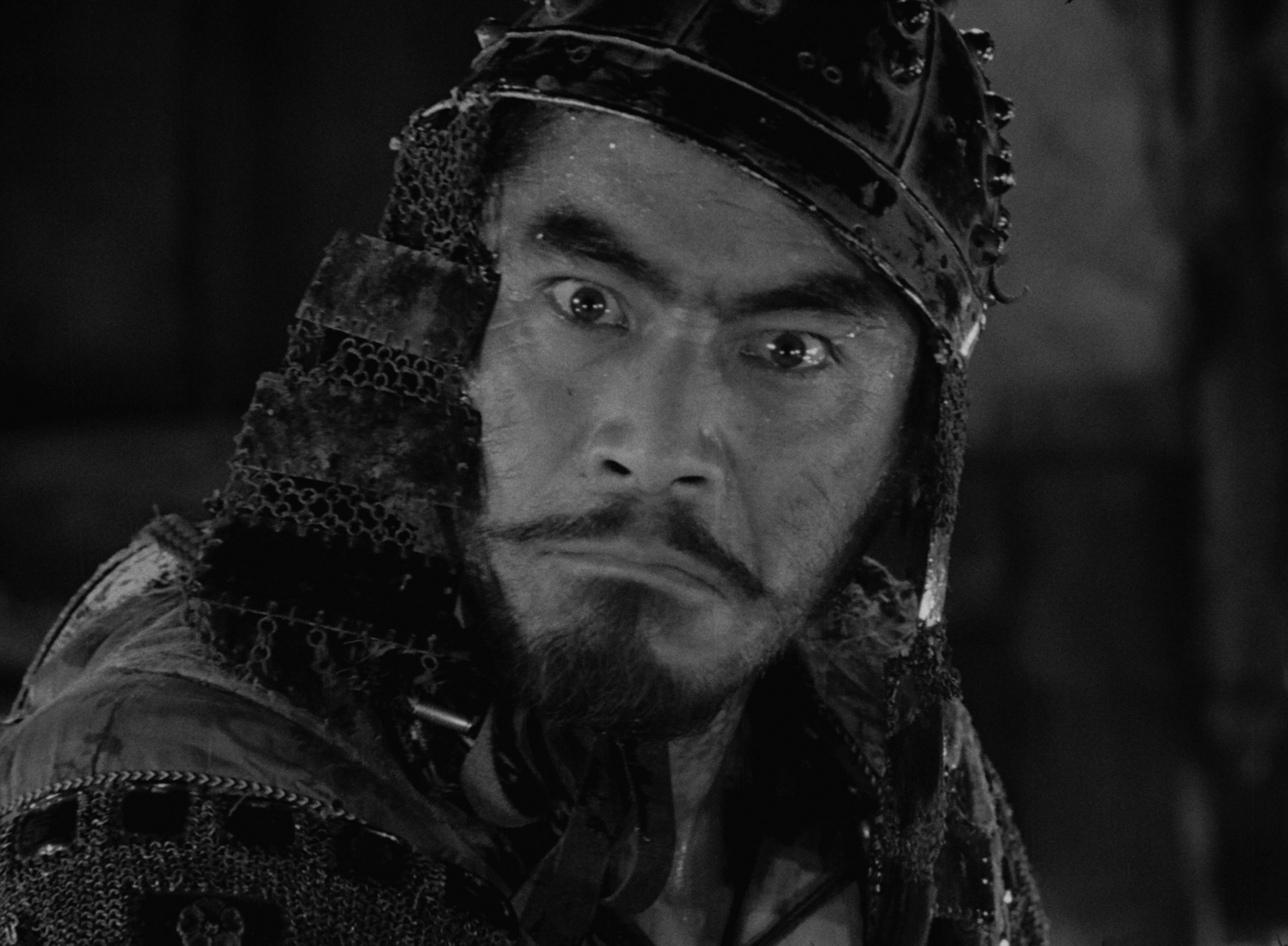
Tuesday, October 1st at 7pm
SEVEN SAMURAI – 70th Anniversary Restoration!
Akira Kurosawa (Japan 1954) 207 min. DCP. With Toshirō Mifune, Takashi Shimura, Daisuke Katō, Isao Kimura, Minoru Chiaki, Seiji Miyaguchi, Yoshio Inaba. Japanese with English subtitles.
One of the most thrilling movie epics of all time, Seven Samurai tells the story of a sixteenth-century village whose desperate inhabitants hire the eponymous warriors to protect them from invading bandits. This three-hour ride from Akira Kurosawa — featuring legendary actors Toshiro Mifune and Takashi Shimura — seamlessly weaves philosophy and entertainment, delicate human emotions and relentless action, into a rich, evocative, and unforgettable tale of courage and hope.
“The finest Japanese film ever made.” – Donald Richie
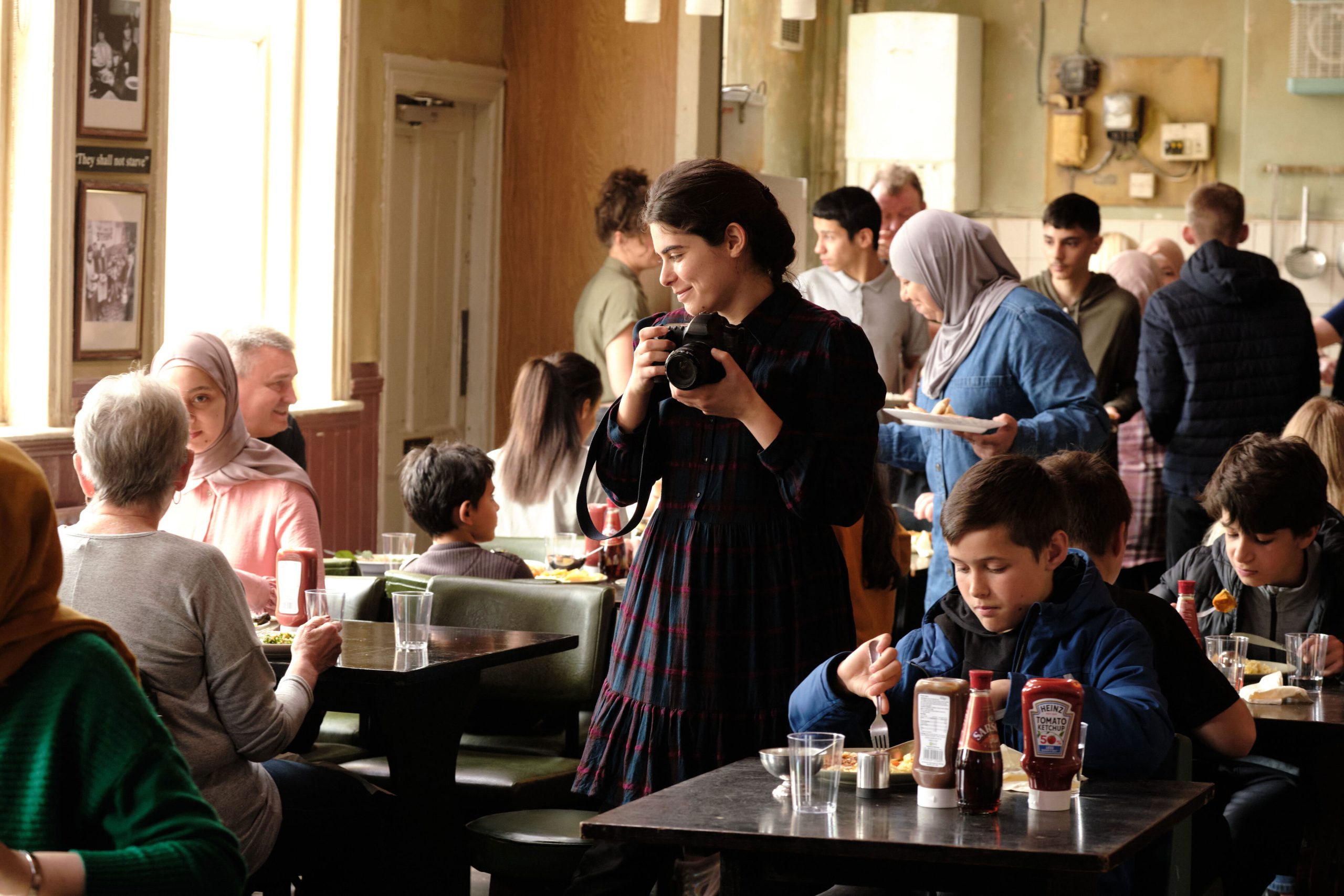
Tuesday, October 8th at 7pm
THE OLD OAK
Ken Loach (United Kingdom 2023) 113 min. DCP. With Dave Turner, Ebla Mari, Claire Rodgerson.
The Old Oak is the last pub standing in a once thriving mining village in northern England, a gathering space for a community that has fallen on hard times. There is growing anger, resentment, and a lack of hope among the residents, but the pub and its proprietor TJ are a fond presence to their customers. When a group of Syrian refugees move into the floundering village, a decisive rift fueled by prejudices develops between the community and its newest inhabitants. The formation of an unexpected friendship between TJ and a young Syrian woman named Yara opens up new possibilities for the divided village in this deeply moving drama about loss, fear, and the difficulty of finding hope. The release of The Old Oak reunites legendary British director Ken Loach with Zeitgeist Films and Kino Lorber following our 2020 release of his film Sorry We Missed You. Loach, who is 87 years old, has announced that The Old Oak will be his final film. Introduction by German Studies Professor and Film/Media Studies Affiliate Bastian Heinsohn.
“You’d know The Old Oak was directed by Ken Loach even if his name wasn’t in the credits. His late work is unmistakable, driven by fierce moral clarity and outrage on behalf of the people whom capitalism and Britain’s government, supposedly constructed for citizens’ benefit, have left behind… [Yara’s] discussion of hope, of a camera as a tool to spot strength in those who are usually passed over or objectified, sounds as though it might be a thesis for [Loach’s] own life and work. Hope can seem obscene. But when it ends, so too does the life of the world.” – Alissa Wilkinson, The New York Times
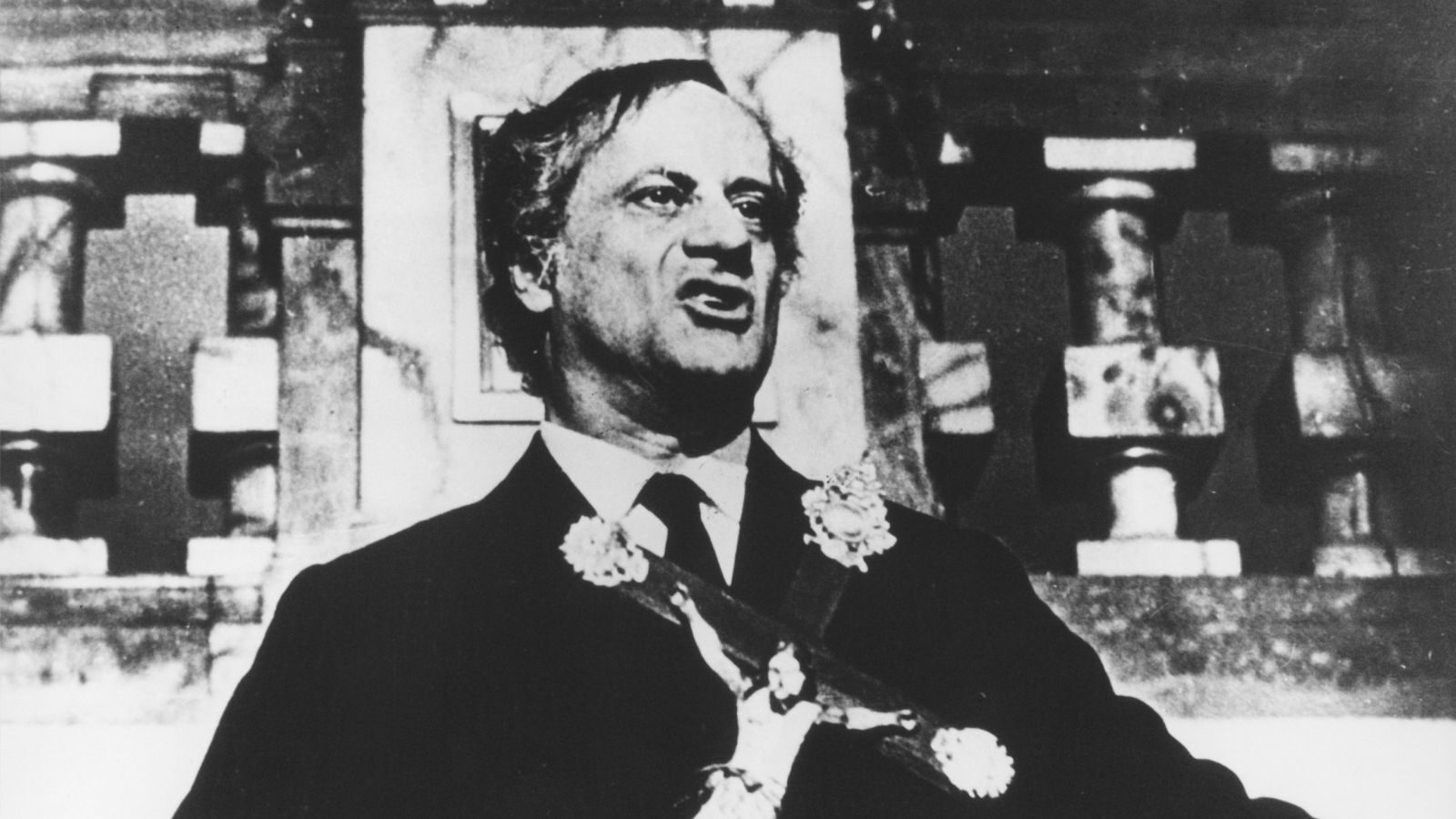
Tuesday, October 22nd at 7pm
ENTRANCED EARTH
Glauber Rocha (Brazil 1967) 108 min. DCP. With Jardel Filho, Paulo Autran, José Lewgoy. Portuguese with English subtitles.
A pivotal film from one of the key figures of Brazil’s Cinema Novo, Entranced Earth is alternately a rallying cry and a poetic account of political corruption, the systems that shape it, and the challenges of active citizenship in times of political upheaval. Made three years after the right-wing coup d’etat in Brazil, the film is set in the fictional country of El Dorado, in which a young intellectual attempts to chart a political path. First joining the extreme right, and then a party of the left, he ultimately finds dispiriting power dynamics in each. Shot by Luiz Carlos Barreto and unfolding in a mesmeric style that mixes bizarre, baroque imagery with realist formal maneuvers—something like the synthesis of Francesco Rosi, Buñuel, and Visconti—the film is a monumental work of political cinema that pushes its audience to examine its own role in civil society. (Film at Lincoln Center notes). Introduction by Philosophy Professor Adam Burgos.

Tuesday, October 29th at 7pm
DON’T LOOK NOW
Nicolas Roeg (United Kingdom, Italy 1973) 110 min. DCP. With Donald Sutherland, Julie Christie.
Donald Sutherland and Julie Christie mesmerize as a British married couple on an extended trip to Venice following a family tragedy. While in that elegantly decaying city, they have a series of inexplicable, terrifying, and increasingly dangerous experiences. A masterpiece from Nicolas Roeg, Don’t Look Now, adapted from a story by Daphne du Maurier, is a brilliantly disturbing tale of the supernatural, as renowned for its innovative editing and haunting cinematography as for its naturalistic eroticism and its unforgettable climax and denouement—one of the great endings in horror history. Playing with Better Like This (Brian Hauser & Daniel Nienhuis, 2024, 6 min.) and introduced by History Professor Jay Goodale.
“A visually immersive, psychological horror that turns grief into the monster, Don’t Look Now is a master class on foreshadowing and building dread. Filled with iconic images and tremendous performances.” – Filmmaker Lulu Wang (The Farewell)
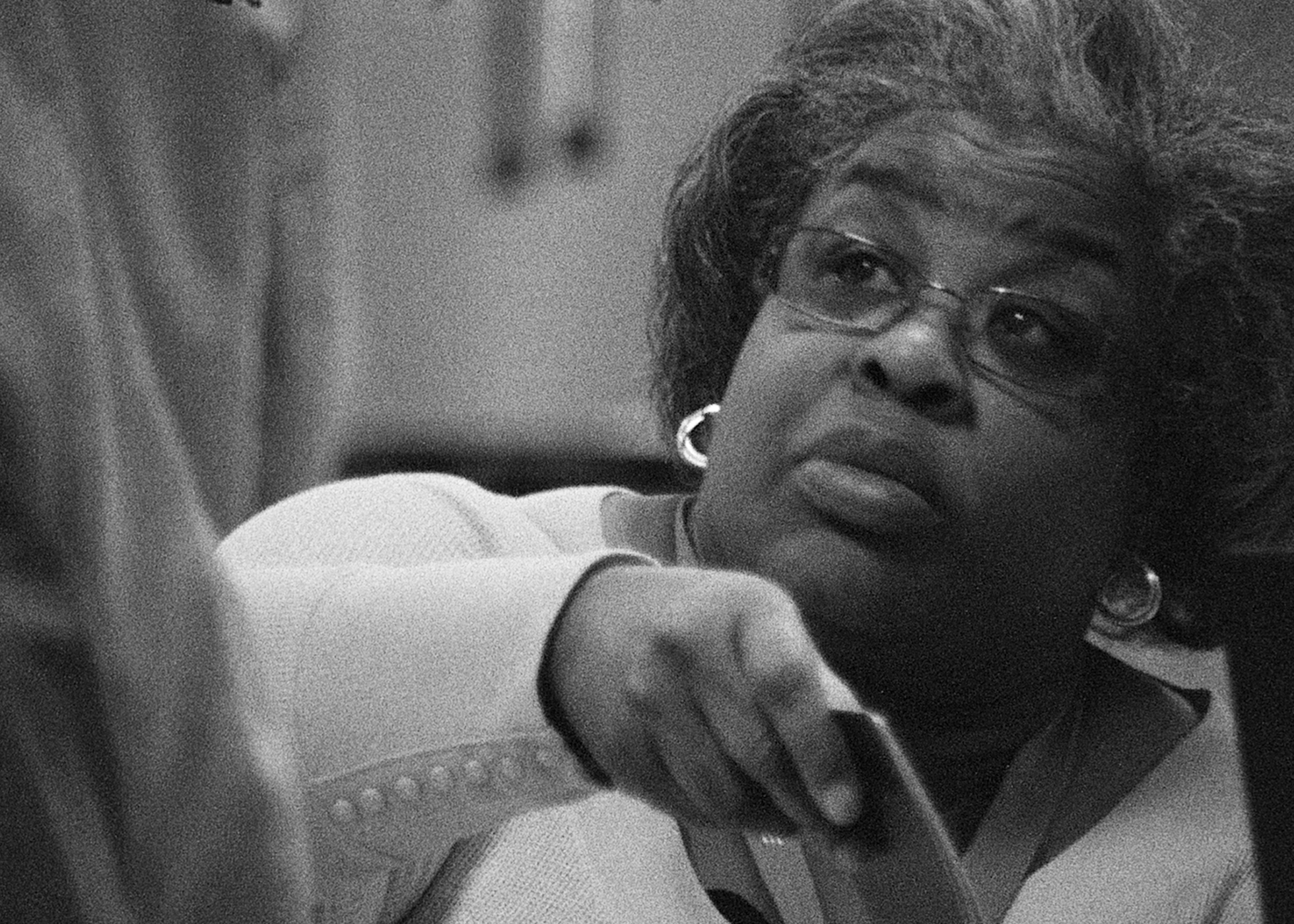
Tuesday, November 5th at 7pm
TONSLER PARK
Kevin Jerome Everson (U.S. 2017) 82 min. 16MM transferred to digital.
“If there is one film that most powerfully underlines the stakes of rehabilitating observation, it is Tonsler Park, Kevin Jerome Everson’s eighty-minute portrait of workers at a polling station in the titular area of Charlottesville, Virginia, on November 8, 2016 – the day [that Donald Trump was elected] president of the United States. … The film demands that we look closely at an event at once quotidian and historic, at people and activities that might otherwise never be held up to view” (Erika Balsom, The Reality-Based Community). Film and still courtesy of the artist and Picture Palace Pictures.
“As one leisurely held shot gives way to the next, Tonsler Park reveals itself beautifully and with incremental, unexpectedly moving force. Mr. Everson is asking you to look, really look, and he is asking you to think, including about documentary cinema’s history of representing black people as problems. And while the absence of the usual assists (text, voice-over) may seem frustrating, it also proves liberating as your mind focuses, wanders and refocuses on these black men and women doing their part for American democracy.” – Manohla Dargis, The New York Times
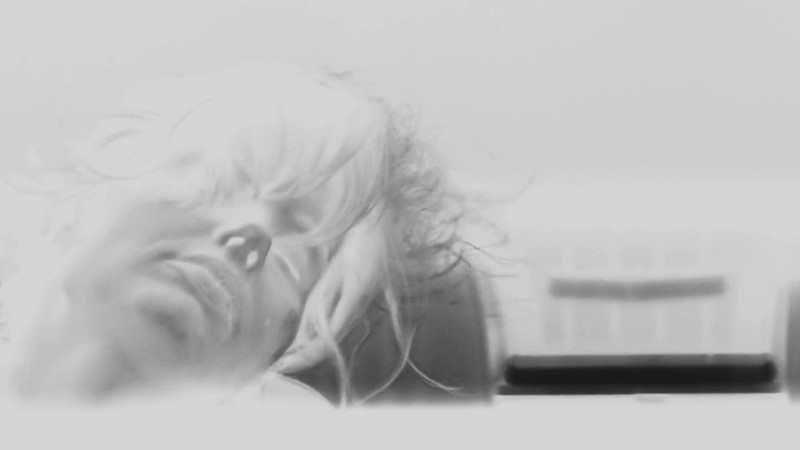
Tuesday, November 12th at 7pm
Life Without Dreams – Director in Person!
Jessica Bardsley (U.S. 2013-2022) Total Run Time 69 min.
Jessica Bardsley’s award-winning films serves as potent metaphors for emotional states – from an exploration of the connections between depression and kleptomania (The Blazing World 2013); to a turn to geology as both a metaphor for, and a psychic container of, women’s emotional states and embodied experiences of physical pain (The Making and Unmaking of the Earth, 2018); to the outer space of consciousness, where the surfaces of far out planetary bodies serve as the terrain for an exploration of the gradual disappearance of darkness, 24/7 capitalism, and insomnia (Life Without Dreams, 2022). Utilizing found footage (from mainstream American movies, archival footage of earth’s processes, YouTube videos of commuters falling asleep on trains) and her own observational material, Bardsley’s films “are always shapeshifting. After all, her introduction to cinema was mediated by the ‘experimental bent’ of video art and documentary filmmaking, and her practice molded by studying poetry and philosophy while listening to punk music in college” (Le Cinema Club).
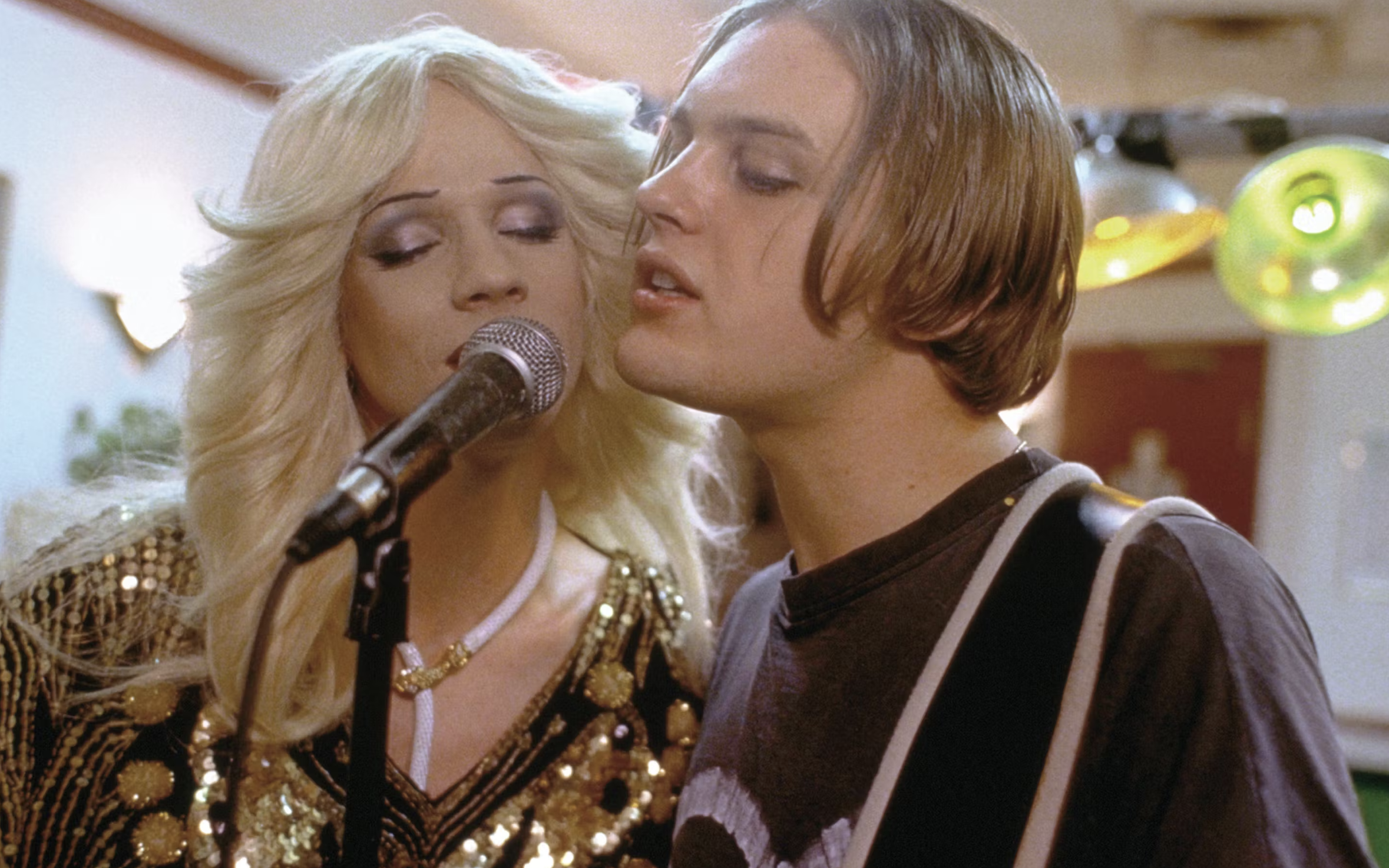
Tuesday, November 19th at 7pm
Hedwig and the Angry Inch
John Cameron Mitchell (U.S. 2001) 95 min. 35MM. With John Cameron Mitchell, Michael Pitt.
“It is clear that I must find my other half. But is it a he or a she? What does this person look like? Identical to me? Or somehow complementary? Does my other half have what I don’t? (…) What about sex? Is that how we put ourselves back together again?” Such are the rhetorical musings of “internationally ignored song stylist” Hedwig, the non-binary punk-rock icon at the centre of writer-director-star John Cameron Mitchell’s glam-rock opera. Through a series of flashbacks, cabaret-styled confessionals, and rock ballads aided by their backing band The Angry Inch, Mitchell’s Hedwig recounts their transformation from Hansel, a boy from the former East Germany, to their current live-wire female persona, and their ongoing pursuit of their former protégé and ex-lover Tommy Gnosis (Pitt), who has become a hugely successful rock star after swiping Hedwig’s songs. Positing love as a genderless union of like souls, Mitchell offers a revolutionary take on Plato’s theory of soulmates whilst rocking the f**k out. (TIFF program notes). Presented in connection with the Samek Art Museum’s Glitter & Trash exhibition, and introduced by philosophy professor (& Samek guest-curator) Pete Groff.
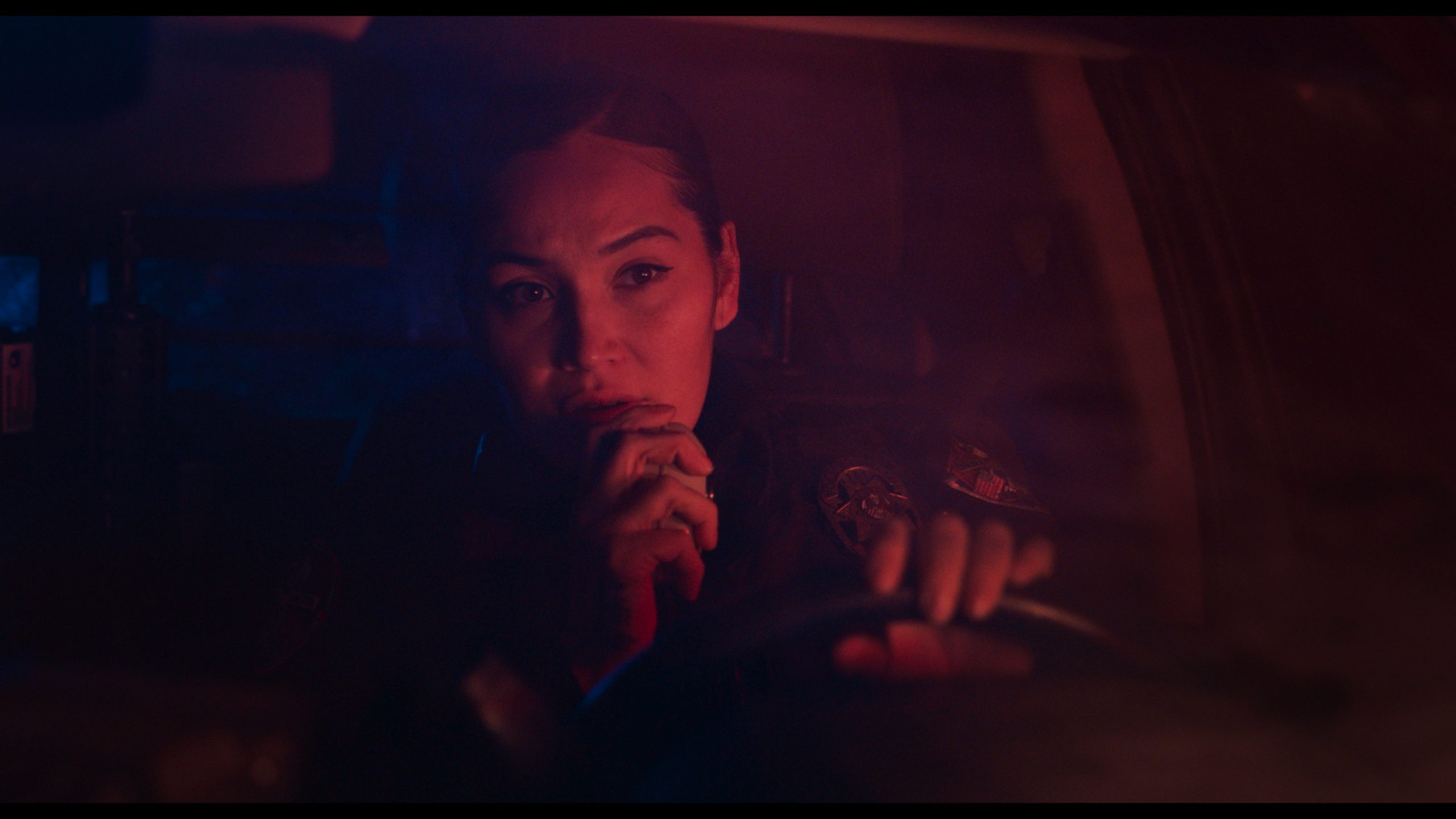
Tuesday, December 3rd at 7pm
EUREKA
Lisando Alonso (Argentina, France, Portugal, Germany, Mexico 2023) 147 min. DCP. With Viggo Mortensen, Chiara Mastroianni, Alaina Clifford. English, Lakota and Portuguese with English subtitles.
The protean Argentinean director Lisandro Alonso (La Libertad; Jauja) continues to shapeshift, delight, and challenge with his marvelous and immersive new film, which takes the viewer on an unexpected journey through three stories set in wildly different terrain, each of them reflecting lives haunted by the specter of colonialist violence. In the first, Viggo Mortensen and Chiara Mastroianni guest-star in a black-and-white neo-Western pastiche following a taciturn gunslinger seeking revenge in a lawless frontier town. In the second section, in a different kind of law-and-order narrative, set during the present day in the Pine Ridge Reservation in South Dakota, we accompany a Native American cop (Clifford) on her nighttime patrols, revealing a community troubled by addiction and poverty, but also, because of the cop’s good-hearted basketball coach niece (Lapointe), touched by transcendence. Finally, the film travels to the magnificent Brazilian rainforest of the 1970s, where Indigenous workers pan for gold while articulating their dream lives. Cleverly transitioning between segments without hand-holding the viewer, Alonso has created an improbably unified aesthetic experience that leaves it up to us to make the connections among its transient worlds (New York Film Festival program notes).
This “intriguingly languorous, visually audacious drama from the Argentine director Lisandro Alonso, is about the existential plight of modern-day Indigenous Americans — people too often trapped in the fictions created by others.” – Beatrice Loayza, The New York Times
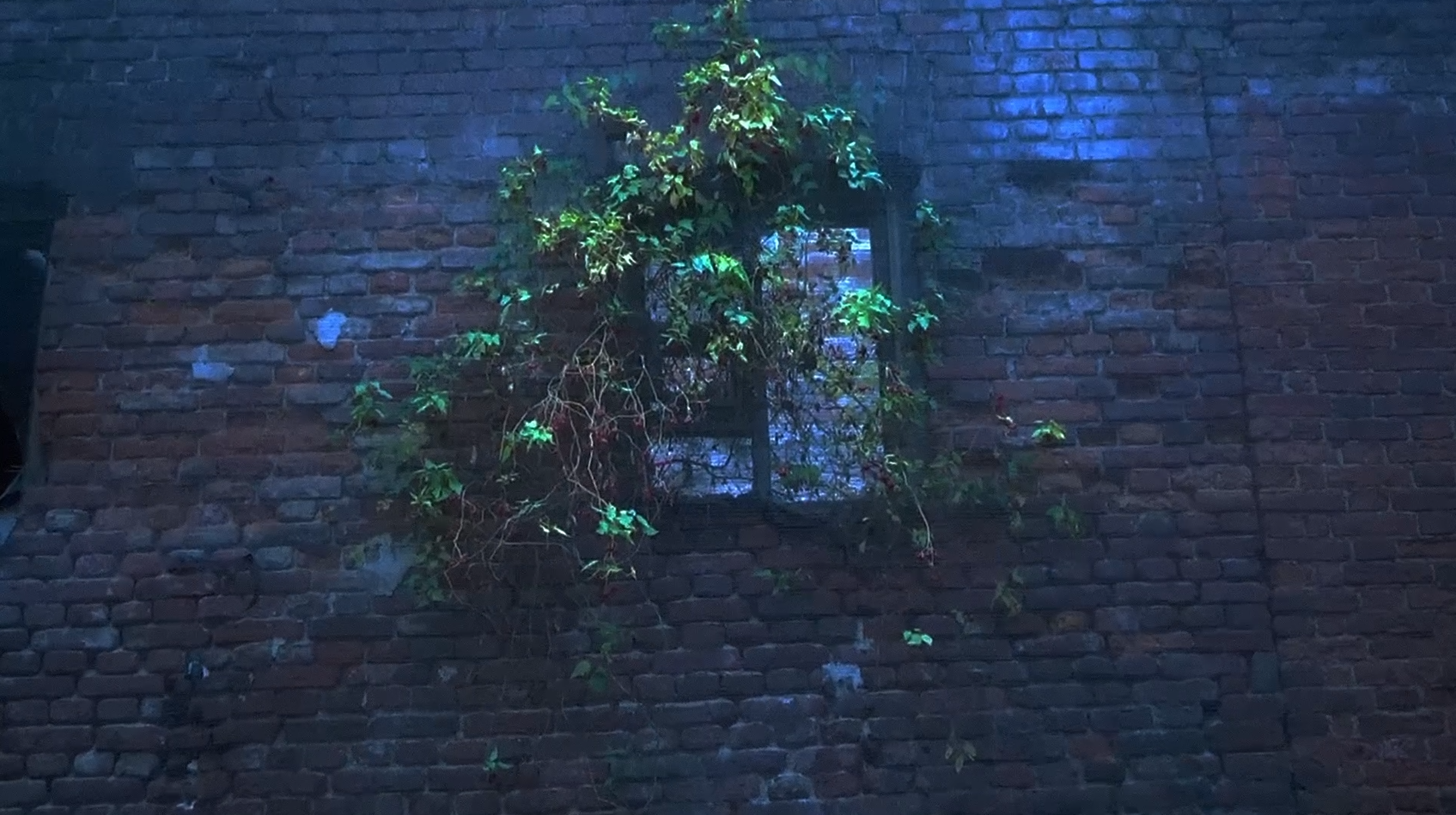
Tuesday, December 10th at 7pm
2024 Student Showcase!
Featuring Films By: Samantha Bruhin, Nicholas Cuevas, Santiago Hernandez Rodriguez, Calogero David LoGrasso, Henry Martin, Kaley McDevitt, John Ogunwomoju, Iaroslava Polusmak, Carleigh Robertson, Priscilla Rodriguez, Meyer Rosen Jack Royal & ENFS 340.
Join us for the world premiere of student films produced as final projects this semester. Filmmakers will be in attendance!